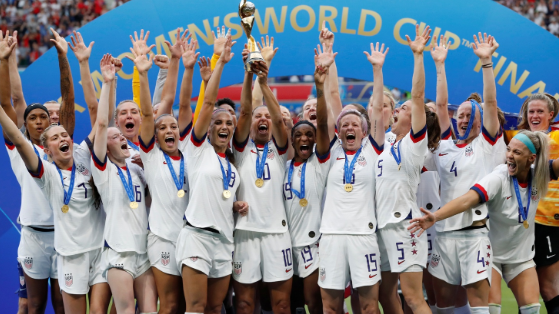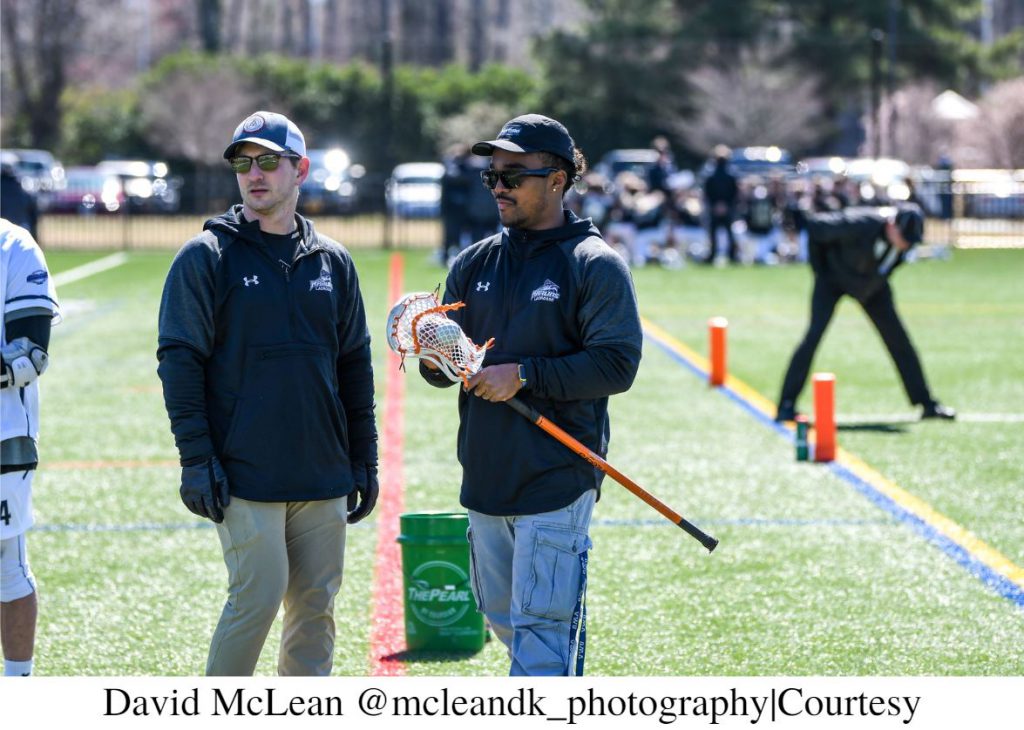The United States women’s national soccer team hoisting their world cup trophy in 2019.
In response to the gender discrimination lawsuit filed by the U.S. women’s national soccer team back in March 2019, the U.S. Soccer Federation answered with demeaning language towards the women’s team and said that they should not get paid equally, because women’s soccer requires less skill than men’s.
The court filings said, “The point is that the job of MNT player (competing against senior men’s national teams) requires a higher level of skill based on speed and strength than does the job of WNT player (competing against senior women’s national teams).”.
Women’s sports are under attack when the president of a national sports organization makes a statement like this, and female athletes have risen to the occasion. Former Virginia Wesleyan women’s basketball player and former assistant coach Brittany Glasco said, “Those women already work ten times harder in everything they do and for that, they deserve both the credit and pay. On top of that, look at what they have accomplished. The men aren’t anywhere near them on a competitive level.”
Former Virginia Wesleyan women’s soccer player Alex Davidson shared similar sentiments. “It’s discouraging to every woman that wants to play professionally. It literally sends the message that no matter how hard you work, or how successful you are, that you will never be as good or as worthy as men based solely on the fact that you were born female.”
The federation made these statements in court documents that were filed on March 9. Only four days later, president of the U.S. Soccer Federation Carlos Cordeiro resigned.
“I was glad the USSF President resigned. It’s a small step in the right direction. However, that alone won’t solve the problem of gender inequality…But I do hope that the worldwide embarrassment forces the federation to pay the women not only what they inherently deserve as professional athletes, but what they’ve so clearly earned. And to ensure going forward that the teams get equal pay, treatment and facilities,” Davidson said.
Cordeiro was replaced by the vice president at the time, Cindy Parlow Cone. However, in those few days before his resignation and after his sexist statement went public, many sponsors and women’s national team members took to criticizing Cordeiro.
Sponsors such as Coca-Cola Co. and Volkswagen spoke out against U.S. soccer’s lack of gender inclusivity. Coca-Cola said the statements made were “unacceptable,” and in a tweet posted on their Twitter page, Volkswagen said, “We place great emphasis on gender inclusivity and equality and require our partners do the same. We stand by the USWNT and the ideals they represent for the world. We demand that U.S. Soccer rise up to these values.”
Some players also made public statements following the court documents filed by the Federation. Christen Press said, “It is the great honor of my life to play this sport and represent this country. Every woman deserves equal pay and every institution anywhere that doesn’t value women as much as men must change now.”
The World Cup history of the United States women’s soccer team is decorated to say the least. Victory after victory, and their worst World Cup outings resulted in third-place finishes. The women’s team consistently makes the World Cup a worthwhile trip by never finishing lower than third place, however, for the men’s team, third place is their only notable finish.
The men’s team placed third in the inaugural World Cup that took place in 1930, nearly a century ago. With such a drastic difference between the success rates of the men’s and women’s national soccer teams, the women’s fight for equal pay should be simple, but it has been everything but that.
Megan Sherman
mrsherman@vwu.edu

